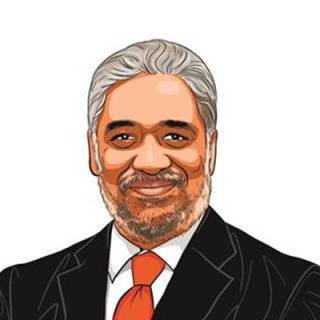Raja Mandala: The Gulf as a channel of peace
As West Asia develops strong economic bonds with India, it could become Delhi’s ally in nudging Islamabad towards political moderation

The idea that the Gulf countries might have some interest, let alone a role, in South Asian security would sound quite improbable for most Indian ears. Whatever that role might be, there is no mistaking the significant activism of the Gulf countries to help defuse the current tensions between India and Pakistan. Media reports, for example, suggest that Saudi Arabia and the United Arab Emirates (UAE) pressed Pakistan to release Wing Commander Abhinandan Varthaman who was downed after a dogfight in the air with Pakistan Air Force last week.
In the past, many parts of the Gulf and Middle East tended to act as Pakistan’s strategic depth. For decades, shared religious identity and common approach to regional affairs gave Pakistan a political edge over India in the region. In recent years, though, Delhi has begun to correct that imbalance. As many Gulf countries, especially Saudi Arabia and the UAE, develop stronger economic and security bonds with India, they could become potential allies in nudging Pakistan towards political moderation and regional accommodation in the Subcontinent. The parlous state of its economy and dependence on financial bailouts from the UAE and Saudi Arabia has made Pakistan more amenable to such an outcome.
This is not some thing new. The security of the Indian Subcontinent and the Gulf region have always been inter-linked. The nature of that interdependence has, of course, varied over time and space. But independent India has tended to underestimate the importance of this strategic intimacy with the Gulf, thanks to Delhi’s entrenched ideological approach to the Middle East.
In the colonial era, undivided India loomed large over the Gulf. During that era, the Raj offered security protection, a framework for commerce and some administrative support. The Gulf and other locations in the Middle East were critical links in the larger architecture of Great Britain’s Imperial defence system in the eastern hemisphere centred on undivided India.
The armies of India had to embark on repeated expeditionary operations in the Gulf and the Middle East through the 19th and early 20th centuries. The Indian army played a key role in the Middle Eastern theatre in both the World Wars.
After Independence, India pulled out of any security role in the Gulf and the Middle East. Pakistan, however, joined the Anglo-American effort to replace the security vacuum created by the Indian withdrawal. It became a member of short-lived regional military alliance called the Central Treaty Organisation (CENTO). Its regional members included Pakistan, Iran, Iraq and Turkey. While India aligned with the nationalist and non-aligned governments like Egypt, Pakistan embraced conservative and pro-Western regimes.










.png)




























No hay comentarios:
Publicar un comentario